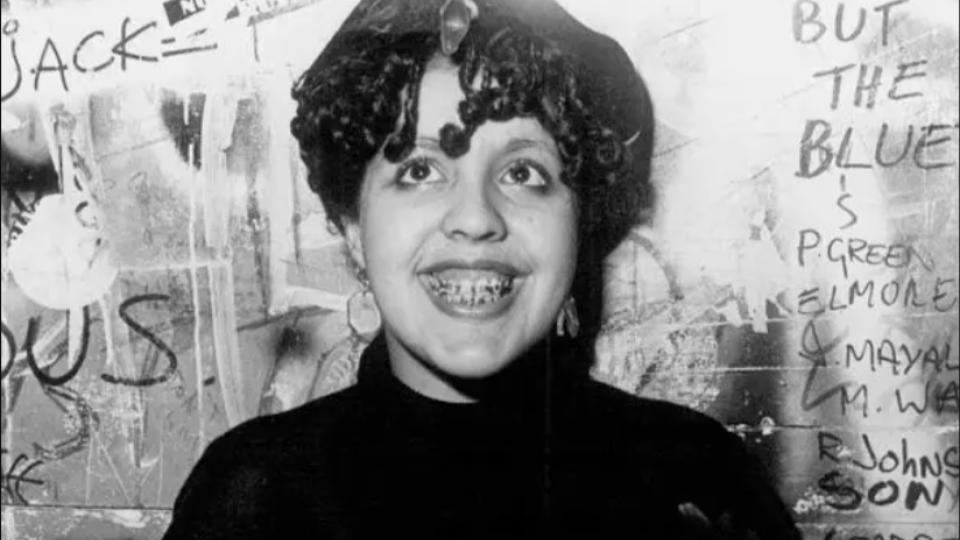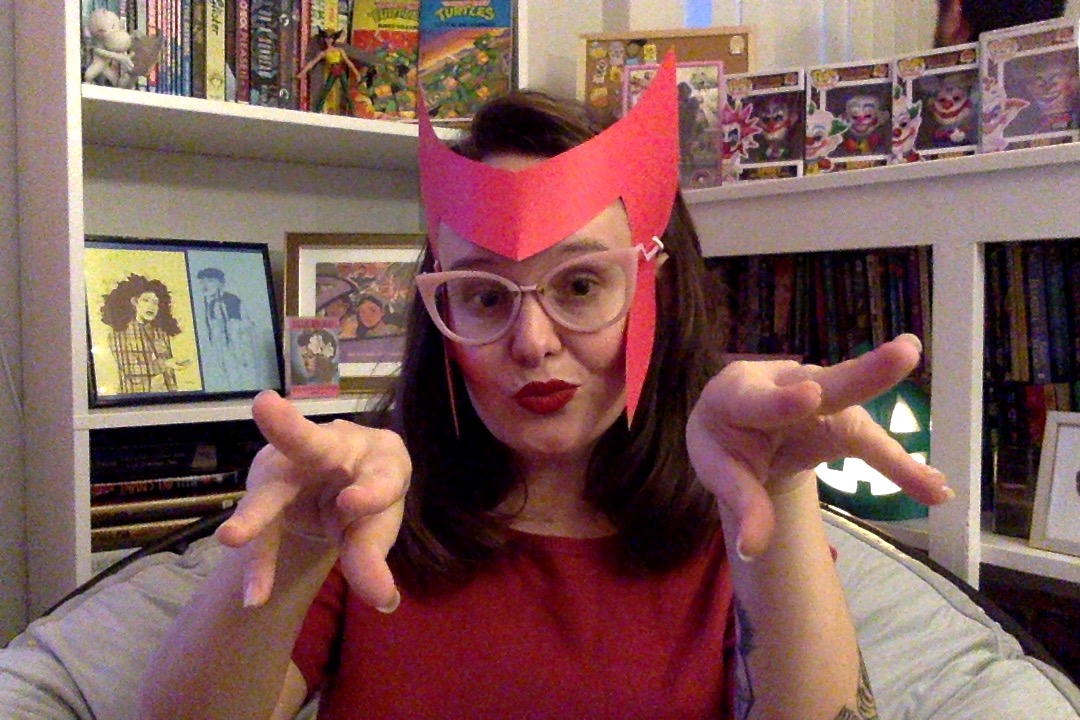What to Watch Verdict
An unmissable and personal exploration of one of the most influential punk musicians of all time.
Pros
- +
⭐ A personal and powerful look at a punk icon
- +
⭐ An incredible cast of talking heads
- +
⭐ A DIY documentary about a DIY trailblazer
- +
⭐ Shines a light on British racism and those who fought it
- +
⭐ Honest exploration of womanhood, motherhood, and all that comes with it
- +
⭐ Puts Poly Styrene on the map for people who don't already know and love her
- +
⭐ Doesn't pull punches about the misogyny and misogynoir in the music industry
- +
⭐ An empathetic and thoughtful conversation about mental health
Cons
- -
⭐ It's only 90 minutes long! Usually our favorite runtime, but this could have been twice as long!
Poly Styrene: I Am a Cliche is part of our SXSW 2021 coverage. You can find all of our reviews here.
When you think of punk music, who do you think of? As a Brit, I'm not trying to get into a "where did it start?" argument. I'm just asking you to close your eyes and think of a punk. Whoever you see, it's unlikely that it's a young Black British-Somalian woman with braces and an afro. That is, unless you're already aware of the radical Poly Styrene, founder and lead singer of the X-Ray Spex. This documentary aims to change that, though, as it highlights her trailblazing career and showcases the huge impact of Marianne Joan Elliott-Said and her punk persona. But the long-awaited film's true power comes from the personal framing, an at times brutal honesty and familial lens that it tells the late punk icon's story through.
Poly Styrene was a large part of my childhood. Not only was my mother an original British punk who saw X-Ray Spex many times, but I was a chubby kid who didn't feel like I fit in anywhere and who hated the idea of any kind of unfairness or cruelty. And Poly represented everything I wanted to be. She was such a presence in my London childhood that I even performed a version of their hit "When the World Turned Day-Glo" on violin dressed in a bin bag in elementary school alongside my classmates when I was around eight years old. But that's not the case for most people. Even for those who did grow up and love punk, the impact and import of this brilliant Black woman has been erased for decades. Poly Styrene: I Am a Cliche explores all of that and more as her daughter dives into her mother's legacy.
Made up of stock footage, archival performances, chats with Poly, audio interviews with those who knew her, and actress Ruth Negga reading the late singer's writings, the documentary is entirely engrossing and feels appropriately homemade. It's both a labor of love and a voyage of self-exploration for her only child, Celeste Bell, who acts as a partial narrator and framing device. As much as this is a story about a young Black woman from Brixton who changed punk, it's also about a mother and her daughter, including all the realities that come with it, both good and bad.
That's at the heart of what makes Poly Styrene: I Am a Cliche such a fresh and powerful feature. It evades the surely enticing opportunity to hero worship Poly instead opting to make a film about the whole woman she was. Beginning with her childhood and family, we journey through her life with a solid focus on her career and impact, but also the impact that worldwide fame had on her. And impact her it did. Insight comes not only from those who knew her but also Poly herself who was an extensive journal keeper and was interviewed a lot during her years of fame. Zoë Howe and Celeste Bell do a great job of crafting a narrative that centers the late musician and (almost) always makes sure that Poly's own words are front and center. Along with editor Xanna Ward Dixon, they weave the archival footage and audio of talking heads chats together into an engaging, emotional, and entertaining watch.
For those who weren't raised around the British punk scene, there's plenty of insight and fun footage to explore too. We get to see Poly on Top of the Pops. We see footage of her in the iconic World's End Market where she ran a clothing stall. Plenty of gigs are documented here, including the now famous CBGB show which was attended by Blondie, Paul Weller, and more. As we traverse Poly's life we hear from Vivienne Westwood and other punk figureheads like Pauline Black from The Selector and Ana da Silva from The Raincoats. Her old bandmates have plenty of wonderful stories to tell but we also listen to anecdotes from Poly's sister and ex-husband. There are stories of her childhood and the racism she faced as a mixed-race woman growing up in the UK in the 50s and 60s. It's a far more holistic look at fame than we're usually afforded, one that's as interested in everything that came before and after as it is in looking at the peak of her success, which in Poly's case was a complex, joyous, and often heartbreaking tale.
Seeing as this is so personal to Celeste--co-who wrote (with Howe) and co-directed the film with Paul Sng--there is an honesty both about herself and her mother that feels radical. There's very little judgement to the struggles that the pair shared. Especially when it comes to Poly's experiences with mental health, which were exacerbated by an outdated and racist medical system. There her daughter becomes an advocate for her mother, explaining about her misdiagnosis and treatment at the hands of the British healthcare system, while also talking about how her struggles impacted her own childhood and ended up with her being partially raised by her grandmother. It's this personal aspect of the documentary that might surprise punk fans or people expecting a cut and dry look at a music legend. But for the most part it's an earnest and sincere angle which artfully celebrates Poly Styrene and her huge impact.
At an easy 90 minutes, Poly Styrene: I Am a Cliche stuffs a lot into its runtime and is a truly satisfying watch. While it feels like each of the eras could have been an episode in its own series, this documentary has been years in the making and I'm just glad it finally got released. I learned a lot more about the woman I've idolized for so long and was surprised by how moved I was by her dueling roles as a mother and musician. It's a great introduction to people who have never heard of the artist, the impact of fame, the problems of the music industry, and also works as an intriguing and emotionally resonant exploration of the mother/daughter relationship. So, basically, no matter what your flavor of non-fiction filmmaking, you could do well to check out this British documentary about one of our unsung punk icons.
Rosie Knight is an Eisner-winning journalist and author who's been writing professionally since 2005. Her career has taken her around the world and, although she hails from London, she currently resides in Los Angeles where she writes full time. She began as a professional poet but transitioned into journalism, starting at the Eisner-winning WWAC in 2016. Since then she has written over 1500 articles for digital media sites including What to Watch, Nerdist, IGN, The Hollywood Reporter, Esquire, Den of Geek, DC Comics, /Film, BuzzFeed, and Refinery29. She also writes comics including The Haunted High Tops and Cougar and Cub. When she's not writing she spends far too much time watching horror movies and Hallmark films.












